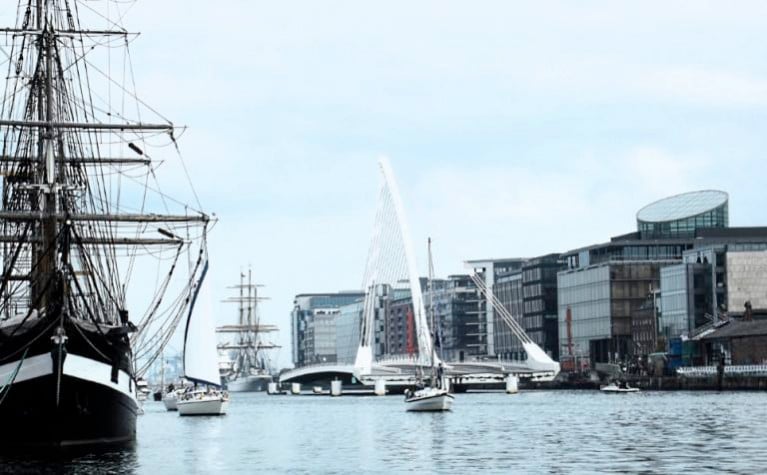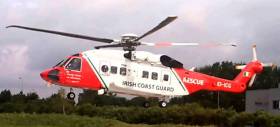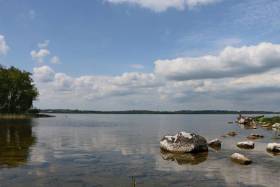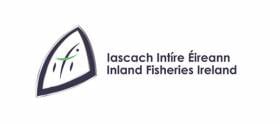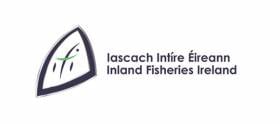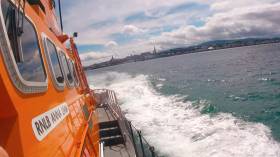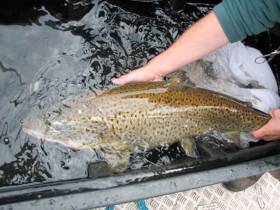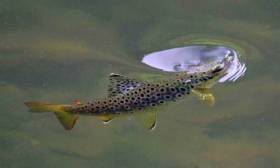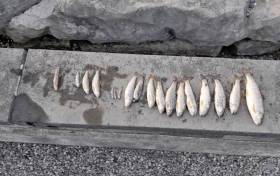Displaying items by tag: Courts
Yachtsman Found Guilty Of Sailing While Drunk In Dublin Port Incident
The captain of a small sailing boat has been found guilty of operating a vessel while intoxicated, among a number of charges over an incident during the Dublin Port Riverfest in 2017.
Boat owner Brian Stacey (46) and Ronan Stephens (42), both from Crumlin, went on trial last summer over the incident on 1 June 2017 that prompted an early morning chase up the River Liffey from Dublin Port to Sir John Rogerson’s Quay.
The court heard that the skipper’s erratic driving of the 26ft quarter tonner Peja delayed the entry of the 4,000-tonne cruise liner Corinthian into the port.
Stephens was arrested after he made landfall at the city quays and stripped off his clothes, it was heard.
And the court also heard Stacey say it was his “God-given right to operate on the water” as he and his co-accused denied all charges, insisting there was no alcohol on their vessel.
Both will be sentenced next week. RTÉ News has much more on the story HERE.
Prison ‘Highly Likely’ For Kinsale Outboard Motor Thieves, Judge Says
A judge at a Cork court has told two outboard motor thieves that the targeting of outboard engines for theft is a particularly disquieting crime, writes Tom MacSweeney.
At Cork Circuit Criminal Court, Judge Sean Ó Donnabháin refused to grant bail to the two men and remanded them in custody for sentencing on November 7.
He said that prison sentences were highly likely.
Giedrius Stoncius (30) and Giedrius Lukosius (33), both with addresses in Mallow, pleaded guilty to the charges of theft in Kinsale in February.
The court was told that the stolen property had been returned to the owners and money had been brought to the court to pay for damage.
The judge said that the methodology and extent of the offences suggested a professional organisation.
Gardaí had warned boat owners about thefts in February.
Patrick McGurgan, a Northern Ireland coroner, has recently called for the introduction of a law to make the wearing of lifejackets compulsory in Northern Ireland, writes Betty Armstrong.
Mr McGurgan had heard two inquests following separate drowning deaths on inland waters which occurred in June and September of last year.
Kenny Andrews (31) of Bangor died in Lower Lough Erne at Muckross Bay, near Kesh, after falling from a jet ski which he and his friend Stephen Kennedy had taken out on the lough on Sunday 9 September 2018.
After turning the craft to return to shore, it capsized and both men were thrown into the water. Neither was wearing a wetsuit or lifejacket. Mr Kennedy survived, and the search continued for the second man.
A multi-agency response got underway involving the Community Rescue Service (CRS), PSNI, Northern Ireland Fire and Rescue Service, RNLI and Irish Coast Guard helicopter from Sligo.
Searching continued throughout the evening before being stood down for the night late on Sunday. It resumed the next day.
Volunteers from Strabane CRS assisted in the search for Mr Andrews. The CRS is a charitable organisation operated by volunteers from across the community in Northern Ireland.
They managed, with the use of a multi-beam side scan sonar device, to locate Mr Andrews’ body and, in a joint operation, it was recovered by the PSNI dive team.
Muckross is situated on the north shore of Lower Lough Erne less than a mile from Kesh. It has beaches, picnic areas, a public jetty and a small marina and is said to be very popular with jet skiers.
The other incident was at Portglenone Marina on the banks of the Lower River Bann, when Edelle McGlade from Portstewart fell overboard in the early hours of Thursday 26 June last year.
The marina was in darkness as the lights automatically switch off after 11.30pm and when Ms McGlade stepped off the boat onto the pontoon, she lost her balance, causing the boat to move slightly away, and she fell into the water.
Despite efforts to rescue her she died. The CRS located her body and brought her ashore.
IFI Secures Three Prosecutions For Harmful Discharges In Lough Sheelin & River Camlin Catchments
Inland Fisheries Ireland (IFI) has prosecuted three businesses and landowners in the Lough Sheelin and River Camlin catchments between May and September 2019, for the discharge of harmful substances to nearby watercourses.
In June, Kiernan Milling of Granard, Co Longford was convicted in Longford District Court for the discharge of effluent to the River Camlin catchment.
Judge Hughes ordered the payment of €2,441.65 in fines and costs, for breaches under the 1959 Fisheries Consolidation Act.
On 23 July, in Virginia District Court, Mr Patrick Kiernan was convicted and ordered to pay €2,900 in fines and costs, for the discharge of effluent to the Kildorragh River in the Lough Sheelin catchment.
A third conviction was secured by IFI in Virginia District Court in September 2019.
Mr John Lynch, Mountnugent, Co Cavan was ordered to pay €2,500 in fines and costs for allowing the discharge of deleterious matter into the Schoolhouse River, also part of the Lough Sheelin catchment.
In a fourth case in May 2019 at Longford District Court, Judge Hughes disposed of a prosecution by IFI against Mr Derek Moorehead in relation to discharges to a tributary of the Camlin River and ordered Mr Moorehead to pay €500 to a wildlife charity.
Lough Sheelin is a well-known wild brown trout fishery in the Great Western Lakes and one of the most important brown trout angling locations in Ireland, while the River Camlin is an important spawning and nursery location for Lough Ree brown trout.
Amanda Mooney, director of the Shannon River Basin District, said: “Pollution events in the spawning and nursery tributaries along these catchments can threaten indigenous fish populations. The maintenance of the aquatic habitat is vital if we are to sustain and enable wild fish populations to thrive.
“Inland Fisheries Ireland is working to protect and conserve this natural resource to ensure its sustainability into the long term.
“Angling for brown trout in lakes in the Inny catchment and Lough Ree generates important economic activity for rural communities and any impact on fish populations in the area may also have negative impact in this regard.”
Inland Fisheries Ireland Secured Prosecution Of Landowner Who Removed Gravel From Munster Blackwater
Inland Fisheries Ireland (IFI) secured a conviction against Mr Bryan O’Neill, a riparian landowner on the Munster Blackwater, for removing spawning gravel during last summer’s drought.
On Tuesday 16 July, Judge John King convicted Mr O’Neill at a special sitting of Mallow District Court under Section 173 1 (d) of the Fisheries (Consolidation) Act 1959 for disturbing spawning beds at Gortmore, west of Mallow on the upper Blackwater.
The court heard evidence from Senior Fisheries Environmental Officer (SFEO) Andrew Gillespie that on or around 1 July 2018, large amounts of spawning gravel had been excavated from the river and deposited at a disused quarry adjacent to the river.
Evidence was heard concerning tracks leading from the river across Mr O’Neill’s land to the quarry. The scale of the extraction led SFEO Gillespie to believe the gravel was being removed for commercial reasons.
The court also heard of IFI’s difficulties serving the court summons to Mr O’Neill and that ultimately the assistance of local gardaí was required to do so.
Mr O’Neill denied the charges and claimed that it was his brother who farmed the land and that he himself had been unaware of the gravel extraction until contacted by Cork County Council in September that year.
Convicting Mr O’Neill, Judge King advised the defendant that his evidence was “not credible”, imposed a fine of €500 and awarded costs of €3,388 to IFI.
Sean Long, director of the South Western River Basin District at IFI, said: “This is an important outcome for the Munster Blackwater and Inland Fisheries Ireland. Riparian owners cannot plead ignorance to avoid responsibility for illegal, damaging works carried out on their lands.
“The removal of so many tons of valuable spawning gravels for minor commercial reward demonstrates a callous disregard for the critically endangered indigenous salmonid and lamprey populations, as well as for the wider community that promotes and benefits from responsible angling practices the length of the Munster Blackwater.
“The maintenance of this vulnerable aquatic habitat is vital if we are to sustain and enable wild fish populations to thrive. We are working to protect, conserve and develop our natural fisheries resource which is of significant recreational and economic value to communities in Munster and across the country.
“We encourage all landowners to contact their advisers or Inland Fisheries Ireland before carrying out and works that may inadvertently damage watercourses on or adjacent to their land.”
Inland Fisheries Ireland (IFI) has prosecuted Irish Water for two separate pollution incidents which occurred in Cavan last summer.
On Thursday 6 June, Judge McLoughlin twice convicted Irish Water at Cavan District Court under the Fisheries (Consolidation) Act 1959 for allowing harmful substances to enter the water on two occasions in June last year.
Over 600 fish were killed as a result of one pollution incident while an important habitat for spawning and young fish was damaged as a result of the other.
The court heard evidence from fisheries inspector Cormac Goulding that on 19 June 2018, staff from IFI noticed that the river downstream of the Ballinagh Treatment Plant in Cavan was in very poor condition.
The water was cloudy and the river was covered in sewage fungus and algal growth.
Following an investigation, it was discovered that untreated sewage was being discharged from the water treatment plant and at the pumping station further downstream.
Irish Water issued a report to IFI in response to the prosecution which revealed that their computerised monitoring system had been offline for six days, which meant that no alerts had been received about the problem.
The effluent was being discharged into aquatic habitat suitable for spawning or young trout.
Judge McLoughlin fined Irish Water €3,000 and total costs of €4,679 were awarded to IFI.
A separate pollution incident occurred a few days later on 25 June 2018 in Cavan Town River.
Judge McLoughlin heard evidence from Ailish Keane, senior environmental fisheries officer at IFI, about how the pollution incident resulted in the death of hundreds of fish including 687 native brown trout.
An investigation found that the fish kill was caused by the release of sewage effluent into the river from an overflow culvert located under Farnham Street Bridge.
Irish Water were again convicted and fined €4,000 plus costs of €4,346.
Milton Matthews, director of the North Western River Basin District at IFI, said: “In both cases in Cavan, harmful material was discharged into local rivers and in Cavan town this resulted in a large kill of over 600 native brown trout, of all age classes.
“As it can take years for a waterbody to recover to its former condition following pollution incidents, it is crucial that robust management systems are in place to prevent avoidable incidents which can have a serious impact on our wild fish and their natural habitat.
“The restoration of the aquatic habitat and the maintenance of water quality is vital if we are to enable wild fish populations to recover naturally.
“We are working to protect, conserve and develop our natural fisheries resource which is of significant recreational and economic value to communities in Cavan and across the country.”
A small sailing boat that was “erratically” zigzagging in the shipping lane delayed a cruise liner from entering Dublin Port, as the Irish Independent reports from a Dublin court.
The trial of two Crumlin men facing charges under the Maritime Safety Act and the Public Order Act is currently before Dublin District Court, following the incident on 1 June 2017 ahead of that year’s Dublin Port Riverfest.
As previously reported on Afloat.ie, Brian Stacey and Ronan Stephens were charged over the incident that prompted an early-morning chase up the River Liffey as far as Sir John Rogerson’s Quay.
It’s also claimed that the activity delayed the entry of the 4,000-tonne cruise liner Corinthian into the port.
The trial continues on Tuesday 18 June. Independent.ie has much more on the story HERE.
Two Anglers Plead Guilty To Illegal Fishing Methods On Cong River During Annual Closed Season
Two anglers recently appeared in court on charges relating to illegal fishing methods on the Cong River and fishing during the closed season.
On Thursday 23 May, Mindaugas Jenkus of Claremorris, Co Mayo and Dalius Bureninas of Birr, Co Offaly appeared in front of Judge Mary Fahy at Clifden District Court in respect of breaches of fisheries legislation on the Cong River which occurred on 9 September 2018.
Both defendants represented themselves and pleaded guilty to strokehauling (using a weighted instrument or device with a rod and line or otherwise to foul-hook fish) and fishing out of season on the Cong River.
Bureninas also pleaded guilty to a further charge of obstruction under Section 301 (7) of the Fisheries (Consolidation) Act 1959.
Fisheries officer Paul Reynolds outlined the facts of the case to the court, while assistant fisheries inspector Barry Kelly also told the court that the Cong River was a very important salmonid fishery with has a large run of Atlantic salmon and a good stock of brown trout.
It is also of particular conservation interest in relation to ferox trout, for which the river is renowned.
The Cong River is one of the main tributaries of Lough Corrib, and is one of the most important salmon rivers in the west of Ireland
Fisheries inspector Pat Gorman stated that these offences were very serious due to the conservation status of the Cong River, when asked his opinion by Judge Fahy.
The judge commented on how serious a matter these offences were and referred to Bureninas giving a false name and address when lawfully demanded. She also noted that Mr Jenkus had a recent conviction for a similar fisheries offence.
Judge Fahy stated that if both defendants paid costs of €600 each to the court at a sitting of Clifden District Court on 26 September, she may deal with the matter by way of a somewhat reduced fine.
She also warned both men to be on their best behaviour and not to come to the attention of Inland Fisheries Ireland (IFI) again as there was a risk of a custodial sentence being imposed.
“The Cong River is one of the main tributaries of Lough Corrib, is one of the most important salmon rivers in the west of Ireland and provides habitat for a very unique salmonid sub-species, ferox trout,” said IFI chief executive Dr Ciaran Byrne when commenting on the case.
“The Cong River is closed to angling during September as a conservation measure relating to both Atlantic salmon and ferox trout. The river attracts many anglers and tourists annually to fish for these unique wild salmonid species.”
Angling Centre Owner Convicted For Illegal Netting On Lough Corrib
The owner of an angling centre from Moycullen was convicted at Galway District Court last Tuesday 5 February for the illegal use of a net and for possession of an unlawfully captured trout.
The court heard that Michael Canney, with an address at Portarra Lodge, was approached by Inland Fisheries Ireland (IFI) fisheries officers on the morning of 25 June 2018 as he was hauling an illegal net into a lake boat on Lough Corrib.
Diorai Ford, solicitor acting for IFI, outlined to the court that fisheries officers had covertly kept the illegal net under surveillance throughout the night.
The net had been fishing since the previous evening when it was discovered during a routine fisheries patrol.
Canney was accompanied in the boat by a foreign student who was staying with him where he operates an angling centre.
When Canney retrieved the net into the boat, it contained one dead brown trout. While in the act of lifting the net, Canney was approached by a fisheries officer on a personal water craft.
Canney was co-operative throughout. The equipment used in the commission of the offences was seized and included a lake boat and engine.
Solicitor for the defendant, Sinead Fitzpatrick, stated in his defence that Canney had a group of Italian anglers staying with him at the time and he was undertaking a survey to see what fish stocks were in the area.
Judge Mary Fahy commented that she knew several people who fish legally on a regular basis on Lough Corrib and that Canney was a mature man and that he knew that what he was doing was illegal.
Judge Fahy convicted Mr Canney on both counts, and imposed a fine of €500 for the use of an unlawful net, along with a fine of €500 for the possession of an unlawfully captured trout.
Costs of €600 were awarded to IFI’s solicitor. The boat and engine that Canney used in the commission of the offences were also forfeited.
IFI chief executive Dr Ciaran Byrne said: “Lough Corrib is considered Ireland’s finest wild brown trout fishery and is also a Special Area of Conservation (SAC) designated for the protection of numerous aquatic species including Atlantic salmon.
“Lough Corrib attracts a vast number of anglers from all over the world who enjoy the unique angling for wild brown trout, Atlantic salmon, pike and coarse fish that the lake offers.
“This conviction reflects the long hours that dedicated fisheries officers spend on a daily basis in protecting our valuable fisheries resource.”
Irish Water Prosecuted Over Fish Kill In Tipperary
#FishKill - Inland Fisheries Ireland (IFI) prosecuted Irish Water yesterday (Tuesday 5 February) at Ballina District Court for the discharge of a harmful substance into the Ballycorrigan River on 17 May last year, causing a fish kill.
Among the fish mortalities were 100 brown trout of different age groups, three juvenile salmon and one stone loach which were killed when a cleaning substance was discharged into the river.
Judge Patrick Durcan heard evidence from Michael Fitzsimons, a senior fisheries environmental officer with IFI, that a detailed investigation was carried out following a pollution report received from the general public.
It found that the fish kill was caused by a combination of effluents arising from an uncontrolled maintenance event from Irish Water’s Ballina/Killaloe wastewater treatment plant.
Irish Water entered a guilty plea. Judge Durcan directed Irish Water to pay IFI’s legal costs of €2,290 and fined the body €2,500.
Judge Durcan stated that Irish Water did not take into consideration the environment and conditions when discharging into the river and that Ireland’s rivers are its most important natural resource.
He said that while these resources are maintained under the vigilance of Inland IFI, Irish Water needs to be vigilant, too.
Amanda Mooney, director of the Shannon River Basin District with IFI, said: “Irish Water co-operated fully with Inland Fisheries Ireland’s investigation and updated its cleaning protocols for the use of chemicals in treatment plants nationwide with more appropriate methods now in use as a direct result of this incident.
“Our fisheries resource is an extremely valuable asset, both from a recreational and economic perspective and it is crucial that we continue to protect and conserve it for future generations to enjoy.”



























